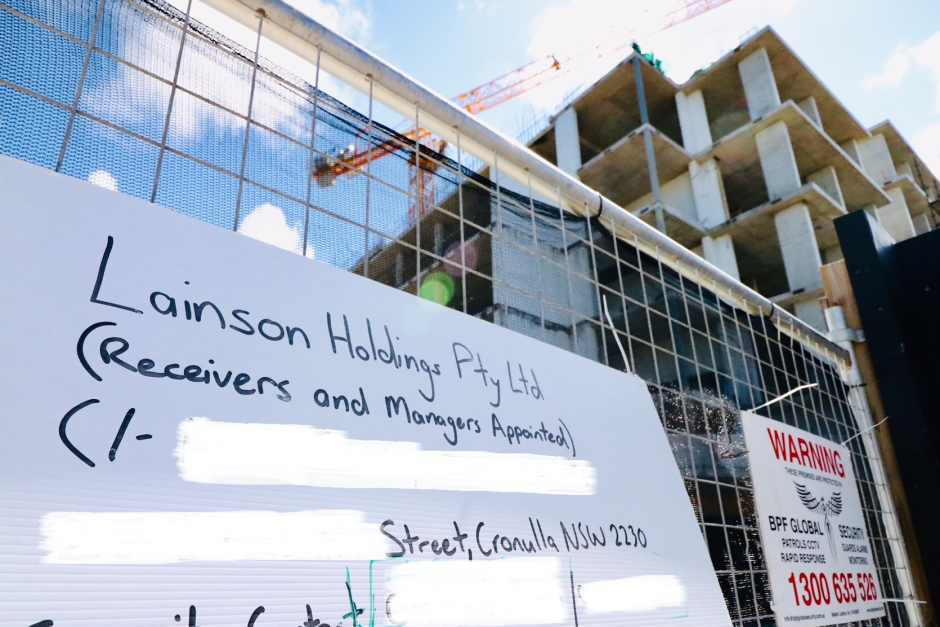
The Challenge of Change – The Finance Flatline
The Hayne Royal Commission has impacted the big four banks on countless fronts, damaging reputational brand value and increasing prudential, regulatory and liquidity pressures. In response to these pressures, the big four banks have turned off the tap on writing construction loans to property developers. It was thus not surprising to hear Mr Luke Hartman, Managing Director of Metro Property, at the Annual Credit Suisse Residential Coalface Conference earlier this month explain to his fund manager audience that Metro Property had not sourced financing from the Australian banks in the last three years, because “they are completely switched off for major private developers.”
Unfortunately, the lessening in supply of construction financing has resulted in a rapid decrease in the number of residential building works entering the pipeline. Across Australia the latest ABS data showed that apartment approvals fell by 18.5% over the year. This means approximately 20,000 fewer units were approved in the twelve months to January 2019. Following the Royal Commission, developers have made a seismic shift away from residential development towards alternative projects for commercial and industrial purposes. Yet developers, who are sticking to their guns and building their high rise residential developments, are discovering a new species of lender, the international banks, including the likes of HSBC and Bank of Singapore. These banks are providing alternative and highly competitive sources of capital raising for the property developers. Additionally, the fractured property lending landscape has welcomed the emergence of second tier banks and private lenders such as Columbus, Black Capital and Blackrock, offering financing to both domestic and foreign developers.
The underlying problem for new residential development is not construction finance, it is credit conservatism impacting off-the plan purchasers. Still reeling in the wake of the Royal Commission, the banks’ lending divisions are operating with a newfound conservatism, evidenced by property valuations for lending purposes sitting at a 10-20% discount to actual property prices. The maximum Loan-to-Value ratio for high density areas such as Zetland and Waterloo have decreased from 80% to 70%. This has become a significant hurdle for investors in off the plan apartments who fear a lack of sufficient funding from the banks at settlement will see contracts inevitably fall through.
So, what does credit conservatism spell out for the property sector as a whole? Firstly, as capital availability tightens and the rate of new developments slows, smaller developers have suffered in line with diminishing deal flow, leading to many exiting from the market. Consequently, existing developers are now facing an oversupply relative to dwindling demand, and as such are being forced to innovate ways through which they can differentiate from competitors. Developers are now offering larger apartments and amenities combined with discounts on stamp duty as well as offering rental guarantees for up to three years to entice investment on top of discounting apartment prices. Whilst providing ample opportunity to effectively compete, over-zealous discounting on price by some developers has in some instances proved counter-intuitive, as investors interpret discounts of up to 20% as signalling inherent problems within the development project rather than an opportunistic price cut. As such, developers are faced with the difficulty of finding the unique balance between competitive pricing whilst preventing unnecessary scepticism in investors.
A further impact on the property sector has been the exodus of Chinese developers who, struggling to find the necessary capital to close deals, are flocking away from the larger contracts on market. Examples include the Dalian Wanda Group, who has now exited the market following the sale of its Sydney and Gold Coast based mixed-property portfolios to Sydney developer Yuhu Group for $1.13 billion. The departure of Chinese developers, however, is positive news for local players like Crown Group, faced with the opportunity to expand their local footprint in the wake of the international withdrawal.
So, what will be the catalyst to turn the property market around? Lending availability must improve for purchasers before anything else is to change. Trident Real Estate does not believe that reducing interest rates will mean that debt becomes more readily available. Instead, shrewd developers will inevitably find sources of capital, whether it be from international players or private ‘shadow’ providers. Real change must come from new government incentives. Mimicking the success of previous first home buyer grants and the NRAS scheme, developers such as Mr Hartman believe without a new, pro-purchaser government incentive, Australia will have a “major housing crisis on its hands”.
It is clear that the government is now burdened with the need to introduce incentives to alleviate the uncertainties and frigidity that pervades the current residential market. On top of this, banks that are funding developers should also have policies set in place to provide loans to off-the plan purchasers. Councils should further endeavour to reduce the red tape surrounding development, which involves decreasing the regulatory burden and reducing delays in granting development approvals. Finally, there should be less scrutiny by the foreign investment board and reduction of penalty surcharge on taxes for foreign investors, such as stamp duty, material holding costs and land tax, in order to attract more overseas investments. With these changes, the property market may just make the comeback desperately called for by developers and investors alike.